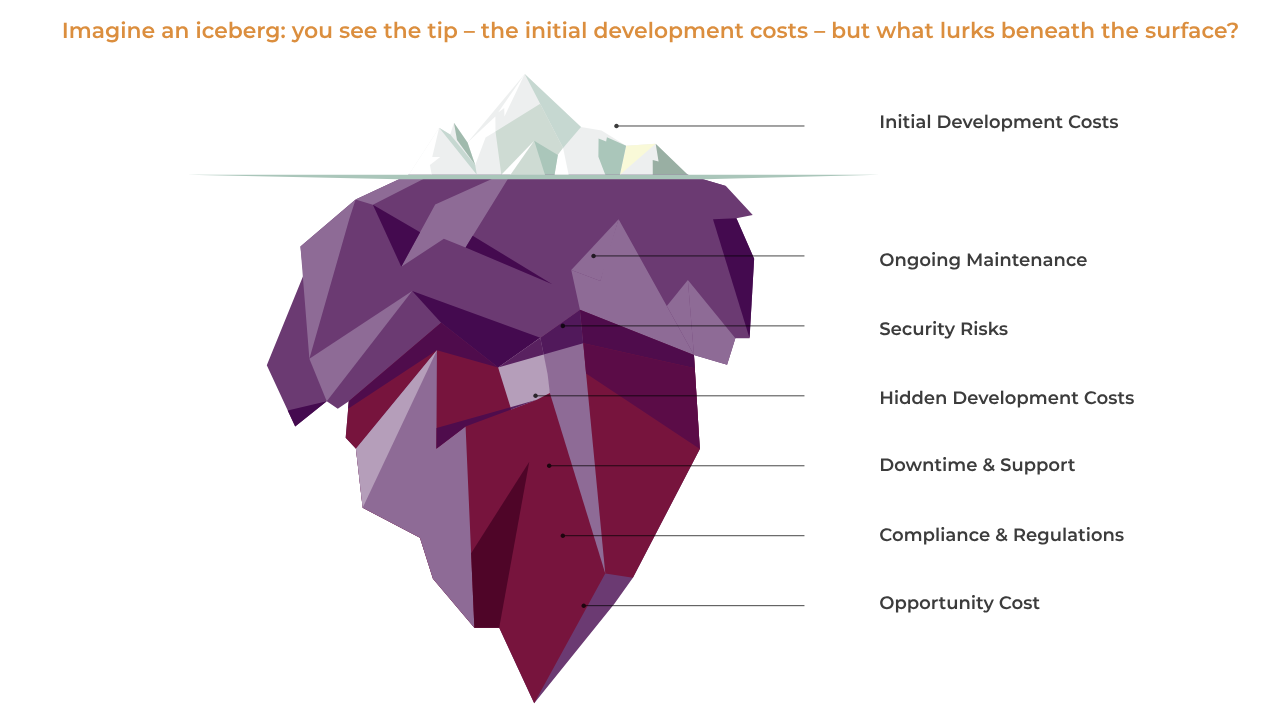In today’s digital age, having a robust eCommerce platform is essential for B2B businesses. But with so many options available, it can be tough to know where to start. One of the biggest decisions you’ll face is whether to build a custom solution in-house or buy a vendor-built platform.
Historically, building was the only option. Companies invested significant time and resources to create custom solutions tailored to their exact needs. While this offered complete control, it often came with challenges like scalability and integration issues. Today, the landscape is different. The rise of sophisticated vendor-built platforms offers compelling alternatives. Businesses no longer have to choose between building and buying; they can adopt a hybrid approach, leveraging pre-built solutions for some functions and building custom solutions for others.
When to Build
Building a custom solution might be the right choice if:
- You have complex business requirements that can’t be met by a vendor solution.
- You have the internal resources and expertise to develop and maintain a custom platform.
- You need complete control over your eCommerce platform and its features.
When to Buy
Buying a vendor-built platform might be the right choice if:
- You need to get your eCommerce platform up and running quickly.
- You have a limited budget for development and maintenance.
- You don’t have the internal resources or expertise to build a custom platform.
The Hybrid Approach
A hybrid approach might be the right choice if:
- You want the flexibility of a custom solution but don’t have the time or resources to build one from scratch.
- You need a platform that can adapt to your unique business requirements.
- You want to leverage the expertise of a trusted vendor.
Factors to Consider
When making your decision, it’s important to consider factors such as:
- Timeframe: How quickly do you need to get your eCommerce platform up and running?
- Budget: What is your budget for development, licensing, implementation, and ongoing maintenance?

- Customer needs: What are your customers’ needs and expectations?
- Future growth: How will your business needs change in the future?
- Stakeholder buy-in: Do you have buy-in from all stakeholders?
- B2B complexity: Do you have complex B2B requirements?
The Power of Hybrid: Customizing a Flexible B2B eCommerce Platform
Instead of forcing a choice between the complexities of building from scratch and the potential limitations of a strictly off-the-shelf solution, there’s a compelling third option: customizing a flexible B2B eCommerce platform. This hybrid approach offers the best of both worlds: a robust, vendor-built foundation tailored to your unique B2B needs. You get to leverage the expertise and resources of a trusted vendor while retaining the ability to fine-tune and adapt the platform to your specific requirements.
Start by identifying a vendor whose core B2B functionality aligns with your non-negotiables.
A B2B-focused platform should deliver 70-80% of the features you might have considered building from scratch. This allows you to focus on your unique needs and find a vendor solution that closely aligns with them out of the box. The result? A foundation for growth, with the flexibility to fine-tune and customize as your business evolves.
Why is this hybrid approach often the winning strategy?
- Resource Optimization: Building from scratch drains time, money, and manpower. Leveraging a vendor’s expertise allows you to focus on what truly differentiates your business.
- Agility and Adaptability: The B2B landscape is constantly evolving. A customizable platform ensures you can adapt to new market trends, customer demands, and technological advancements.
- Future-Proofing Your Investment: Avoid the limitations of B2C-centric platforms with bolted-on B2B features. A purpose-built B2B solution provides the scalability and flexibility to support your long-term growth.
| Compare your eCommerce software options using the table below | |||||
| Requirements | Build | Buy | Customize | ||
| You’re a small business | P | ||||
| You have a limited budget. | P | P | |||
| You don’t want to deal with integrations. | P | ||||
| Implementation speed and quick time-to-market is a priority | P | P | |||
| You have complex corporate hierachies. | P | P | |||
| You have complex workflows for customers, prices, and supply chains. | P | P | |||
| You need to manage quotes, contracts, and order approvals | P | P | |||
| You need multiple checkout, payment, and shipping options. | P | P | |||
| You operate across different markets, regions, and verticals. | P | P | |||
| You are in highly regulated industry with restrictions on ordering and shipping. | P | P | |||
| You want full control of your development and licensing. | P | P | |||
By choosing a vendor that embraces customization and open integration, you gain the best of both worlds: a robust, reliable platform tailored to your unique B2B needs.
OroCommerce is a leading B2B eCommerce platform that offers the flexibility and scalability businesses need to succeed. With its robust features and open architecture, OroCommerce can be easily customized to meet the unique requirements of any B2B business.
For businesses looking for a trusted implementation partner, Ekino Vietnam offers extensive experience and expertise in delivering successful OroCommerce projects.
Contact us now via contact@ekino.com to explore how Ekino Vietnam and OroCommerce can help you build a winning B2B eCommerce strategy







